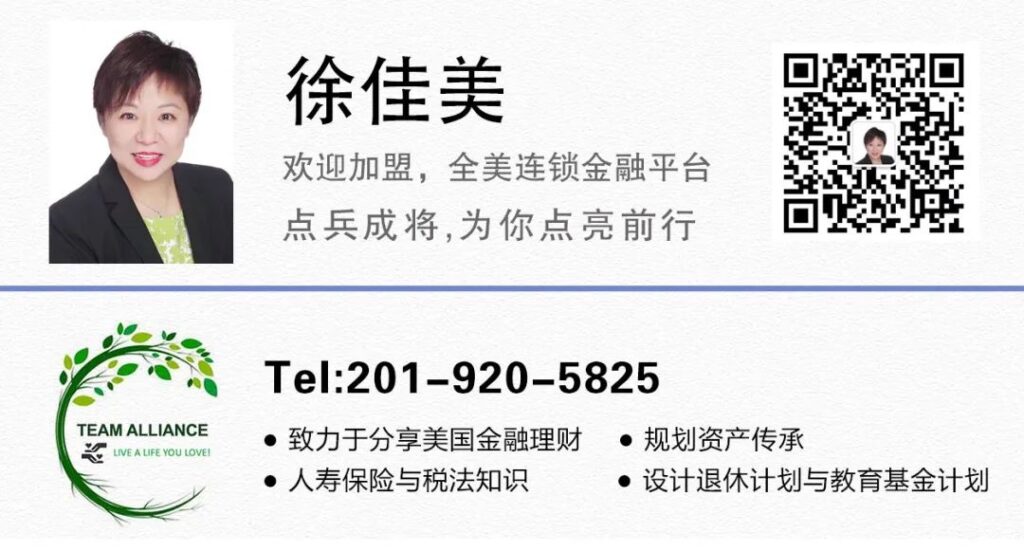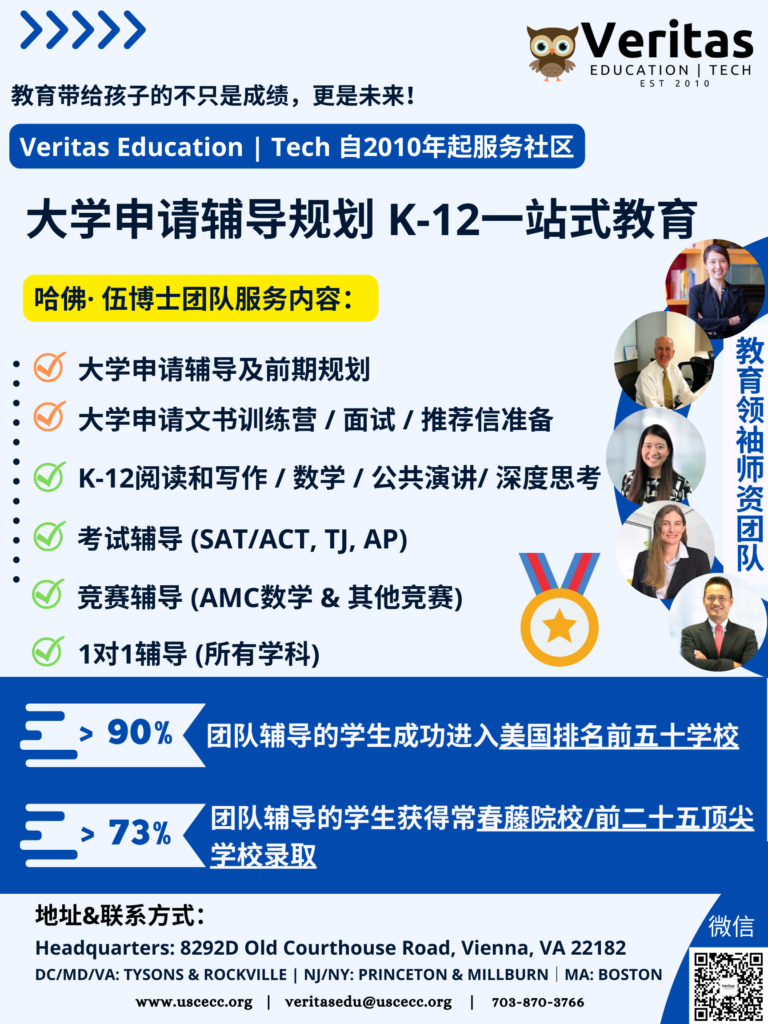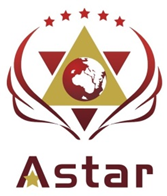USCIS Provides Guidance on Program for International Entrepreneurs
Release Date: 03/10/2023
U.S. Citizenship and Immigration Services has issued comprehensive guidance (PDF, 311.98 KB) on parole for international entrepreneurs.
To enhance entrepreneurship, innovation and job creation in the United States, the Department of Homeland Security (DHS) published the International Entrepreneur Rule on Jan. 17, 2017.
This rule provides a framework for DHS to use its parole authority to grant a period of authorized stay, on a case-by-case basis, to noncitizen entrepreneurs who possess a substantial ownership interest in a start-up entity and who can demonstrate that their stay in the United States would provide a significant public benefit through that start-up entity’s potential for rapid business growth and job creation.
After fully implementing the International Entrepreneur Rule in 2021, we have received a growing number of applications and continue to adjudicate them as expeditiously as possible.

We are now publishing guidance in the Policy Manual, which includes information about:
- The criteria for consideration for the applicant, the start-up entity, and the qualified investment or government award or grant;
- Evidence and documentation;
- The discretionary nature of the entrepreneur parole adjudication;
- Conditions on parole and bases for termination;
- The criteria for consideration for an additional parole period; and
- Options available to the entrepreneur’s family to join the entrepreneur as parolees and, if eligible, to obtain employment authorization.
Although an individual who is paroled into the United States has not been admitted into the United States for purposes of immigration law, parolees may enter and remain in the United States and may be authorized to work.
For more information, see Part G (International Entrepreneur Parole) in Volume 3, Humanitarian Protection and Parole, of the USCIS Policy Manual.
Additional information on the international entrepreneur parole process, including the criteria for consideration, related definitions, how to apply, and questions and answers, is available on the International Entrepreneur Parole page.
Last Reviewed/Updated: 03/10/2023
USCIS to Start Collecting Fee for EB-5 Integrity Fund
Release Date: 03/01/2023
Today, the Department of Homeland Security posted a Federal Register notice providing information related to the EB-5 Integrity Fund. We will use the EB-5 Integrity Fund primarily to administer the EB-5 Regional Center Program, as required by the EB-5 Reform and Integrity Act of 2022. Starting March 2, we will collect an annual fee from each designated regional center to finance the EB-5 Integrity Fund.
As required under the new EB-5 law, the fee is $20,000 for regional centers with more than 20 investors and $10,000 for those with 20 or fewer investors. The fee payment for fiscal year (FY) 2023 is due by Apr. 1, 2023, and regional centers must pay the fee online directly at Pay.gov, a system managed by the U.S. Department of the Treasury. Starting in FY 2024 (October 2023), the fee will be due at the start of each fiscal year between Oct. 1 and Oct. 31.
In addition, the filing fee for Form I-526E, Immigrant Petition by Regional Center Investor, increased by $1,000 on Oct. 1, 2022, to incorporate the Integrity Fund fees.
We may use fees collected for the EB-5 Integrity Fund to detect and investigate fraud and other immigration crimes.
硅谷 101 — 有趣的前沿科技深度视频
We will not impose late fees for payments that were due in FY 2023. We will start imposing a late fee, beginning October 2023, for any payments made more than 30 days later than the due date. We will announce the amount of the late penalty and the process for collecting in a future publication before we collect it or it is due.
Per the new EB-5 law, we must terminate the designation of any regional center that does not pay the fee within 90 days of the due date. Termination will not be automatic, and we will provide a notice of intent to terminate and the opportunity to prove that the fee was paid in the proper amount within 90 days of the due date before sending a notice of termination.
The EB-5 Regional Center Program makes visas available to qualified immigrants (and the eligible spouses and children of such immigrants) who pool their investments with other qualified immigrants in a “regional center” in the United States. We designate regional centers based on a proposal for the promotion of economic growth, including prospective job creation and increased domestic capital investment in their requested geographic region.
The Federal Register notice and the EB-5 Integrity Fund page explain the requirement for the fee and provide the process for how it is to be paid.
Last Reviewed/Updated: 03/01/2023
第一次买房者可申请到 $12500-$15000 的买房补助,并且首付可放到低至3%.
两个不同的补助项目:
1. 一个是高达 $15000 补助,目前对马里兰州的所有County和滨州的York County开放.
2. 另一个是 $5000 补助,对全美50个州开放.
USCIS Issues Clarifying Guidance for Individuals Authorized to Work Under Special Student Relief Provisions
Release Date: 02/22/2023
U.S. Citizenship and Immigration Services is issuing policy guidance in the USCIS Policy Manual to clarify the validity period of employment authorization for F-1 nonimmigrant students experiencing severe economic hardship due to emergent circumstances (also known as special student relief (SSR)) who are work authorized under the SSR provisions of 8 CFR.
The update clarifies that in cases of severe economic hardship due to emergent circumstances, we may grant off-campus SSR employment authorization to an F-1 nonimmigrant student for the duration of the Federal Register notice validity period. This employment authorization may not extend past the student’s academic program end date. This update notes that we may issue employment authorization documents for the duration of the Federal Register notice, which is typically an 18-month validity period, as permitted by the relevant SSR Federal Register notice.
Emergent circumstances are events that affect F-1 nonimmigrant students from a particular region and create severe economic hardship. These events may include, but are not limited to, natural disasters, financial crises, and military conflicts.
This policy update will be effective when published and will apply to all pending and future applications for SSR employment authorization.
For more information, see the policy update (PDF, 313.07 KB).
Last Reviewed/Updated: 02/22/2023
北美房屋检查 | 华府房屋检查 MD/VA 电话: (240)784-6645
FY 2024 H-1B Cap Initial Registration Period Opens on March 1
Release Date: 01/27/2023
Today, U.S. Citizenship and Immigration Services announced that the initial registration period for the fiscal year 2024 H-1B cap will open at noon Eastern on March 1 and run through noon Eastern on March 17, 2023. During this period, prospective petitioners and representatives will be able to complete and submit their registrations using our online H-1B registration system.
We will assign a confirmation number to each registration submitted for the FY 2024 H-1B cap. This number is used solely to track registrations; you cannot use this number to track your case status in Case Status Online.
Prospective H-1B cap-subject petitioners or their representatives are required to use a myUSCIS online account to register each beneficiary electronically for the selection process and pay the associated $10 H-1B registration fee for each registration submitted on behalf of each beneficiary. Prospective petitioners submitting their own registrations (U.S. employers and U.S. agents, collectively known as “registrants”) will use a “registrant” account. Registrants will be able to create new accounts beginning at noon Eastern on Feb. 21.
Representatives may add clients to their accounts at any time, but both representatives and registrants must wait until March 1 to enter beneficiary information and submit the registration with the $10 fee. Prospective petitioners or their representatives will be able to submit registrations for multiple beneficiaries in a single online session. Through the account, they will be able to prepare, edit, and store draft registrations prior to final payment and submission of each registration.
If we receive enough registrations by March 17, we will randomly select registrations and send selection notifications via users’ myUSCIS online accounts. If we do not receive enough registrations, all registrations that were properly submitted in the initial registration period will be selected. We intend to notify account holders by March 31.
The U.S. Department of Treasury has approved a temporary increase in the daily credit card transaction limit from $24,999.99 to $39,999.99 per day for the FY 2024 H-1B cap season. This temporary increase is in response to the volume of previous H-1B registrations that exceeded the daily credit card limit. Additional information will be provided before the start of the initial H-1B registration period.
An H-1B cap-subject petition, including a petition for a beneficiary who is eligible for the advanced degree exemption, may only be filed by a petitioner whose registration for the beneficiary named in the H-1B petition was selected in the H-1B registration process.
Last Reviewed/Updated: 01/27/2023
USCIS
Recommendations for Paper Filings to Avoid Scanning Delays
Release Date: 12/19/2022
U.S. Citizenship and Immigration Services (USCIS) is providing information for nonimmigrant workers whose employment has terminated, either voluntarily or involuntarily. These workers may have several options for remaining in the United States in a period of authorized stay based on existing rules and regulations.
Below is a compilation of options that may be available to nonimmigrant workers seeking to remain in the United States in a period of authorized stay following termination. Please note that not all options below provide employment authorization.
60-Day Grace Period
Regulations permit a discretionary grace period that allows workers in E-1, E-2, E-3, H-1B,
H-1B1, L-1, O-1, or TN classifications (and their dependents) to be considered as having maintained status following the cessation of employment for up to 60 consecutive calendar days or until the end of the authorized validity period, whichever is shorter (See 8 CFR 214.1(l)(2)).
During this period, workers may be able to maintain their nonimmigrant status if a new employer timely files a petition on their behalf with an extension of stay request (e.g., an H-1B change of employer petition for a worker in H-1B status).
Alternatively, workers may be able to remain in the United States in a period of authorized stay if they timely file an application to change to a new nonimmigrant status (such as B-2 visitor nonimmigrant status) or an application for adjustment of status, if eligible (see below for a detailed overview of options).
Workers who are unable to timely file a change of status application, or find a new employer who timely files a change of employer petition for the worker, may be required to depart the United States at the end of this grace period.

Portability to a New Employer
Portability rules permit workers currently in H-1B status to begin working for a new employer as soon as the employer properly files a new H-1B petition with USCIS, without waiting for the petition to be approved. More information about H-1B portability can be found on our H-1B Specialty Occupations page.
Also, a worker with an adjustment of status application (Form I-485) that has been pending for at least 180 days with an underlying valid immigrant visa petition (Form I-140) has the ability to transfer the underlying immigrant visa petition to a new offer of employment in the same or similar occupational classification with the same or a new employer. This is commonly referred to as “porting.” More information about porting can be found in the USCIS Policy Manual.
Change of Status
Workers may use the up to 60-day discretionary grace period to apply to change their nonimmigrant status, which may include changing status to become the dependent of a spouse (e.g., H-4, L-2). Some individuals in a dependent nonimmigrant status may be eligible for employment authorization incident to status, including spouses of E-1, E-2, E-3, or L-1 nonimmigrants (See USCIS Policy Manual). In addition, some spouses of H-1B workers may be eligible for work employment authorization if certain requirements are met.
Other possible nonimmigrant options include student status (F-1) or visitor status (B-1 or B-2). Note that, by statute, B-1 and B-2 nonimmigrant visitors are specifically precluded from “performing skilled or unskilled labor” in the United States. Certain F-1 students, by regulation, may engage in limited employment. For more information, please see our Change My Nonimmigrant Status page.
Potential pathways for noncitizen STEM professionals can be found on our Options for Noncitizen STEM Professionals to Work in the United States page.

Note: The timely filing of a non-frivolous application to change status will toll, or stop, the accrual of unlawful presence until the application is adjudicated. For example, if an individual files a non-frivolous application to change status before the end of the applicant’s 60-day grace period, they will not accrue unlawful presence while the application remains pending even after the 60-day grace period has elapsed. If the application is ultimately approved, then the individual’s status is changed and is considered to have been in a period of authorized presence the entire time the application was pending. If the application is denied, then the individual starts to accrue unlawful presence the day after the denial decision. Please see our Unlawful Presence and Inadmissibility page for more information.
Change of Status and Employer
Workers may use the up to 60-day discretionary grace period to seek a new employer-sponsored nonimmigrant status in the same or different status. For example, depending on the specific facts presented, an L-1 worker may be eligible for new employment under the TN, E-3, or H-1B1 classifications. The timely filing of a non-frivolous change of status application will prevent the accrual of unlawful presence until the application is adjudicated (see above). Such a filing alone will not, however, confer employment authorization in the new position during the pendency of the application, and will not extend employment authorization if the original classification is no longer valid. Some petitions may be eligible for premium processing for an additional fee.
Adjustment of Status
Some workers may be eligible to file a self-petitioned immigrant visa petition concurrently with an adjustment of status application. Examples of immigrant classifications that are eligible for self-petitioning include EB-1 Extraordinary Ability, EB-2 National Interest Waiver, or EB-5 Immigrant Investors. Workers with a pending adjustment application are generally eligible to remain in the United States and obtain an Employment Authorization Document (EAD).
Period of Authorized Stay – Compelling Circumstances Employment Authorization Document
Workers who are the beneficiary of an approved employment-based immigrant visa petition (Form I-140) may be eligible for a compelling circumstances EAD for up to one year if they:
- do not have an immigrant visa available to them in the Department of State’s Visa Bulletin, and
- face compelling circumstances.
Note: A compelling circumstances EAD is a discretionary stopgap measure intended to assist certain individuals on the path to lawful permanent residence by preventing the need to abruptly leave the United States. Workers who begin working on a compelling circumstances EAD will no longer be maintaining nonimmigrant status but generally will be considered to be in a period of authorized stay and will not accrue unlawful presence in the United States while the EAD is valid. More information about eligibility requirements and the application process can be found on our Employment Authorization in Compelling Circumstances page.
Expedite Criteria
Some circumstances may warrant expedited adjudication, including applications to change status to a dependent status that includes eligibility for employment authorization. For example, an application to change status from H-1B to L-2 may be eligible for expedited adjudication to prevent severe financial loss. See the How to Make an Expedite Request page for additional information.
Departure from the United States
Workers may choose to depart the United States. For H-1B and O workers who chose to depart the United States after involuntary cessation of employment, the reasonable costs of transportation to the worker’s last place of foreign residence must be borne by the H-1B employer or by the O employer and O petitioner, as applicable (See 8 CFR 214.2(h)(4)(iii)(E) and 8 CFR 214.2(o)(16)).
Once abroad, H-1B holders may seek U.S. employment and readmission to the United States for any remaining period of their H-1B status. Those seeking another classification for which they may be eligible can complete the application or petition process abroad and seek readmission to the United States.
The above information is now available on our new Options for Nonimmigrant Workers Following Termination of Employment page.
Last Reviewed/Updated: 12/19/2022
USCIS Extends Green Card Validity Extension to 24 Months for Green Card Renewals
Release Date: 09/28/2022
Effective Sept. 26, U.S. Citizenship and Immigration Services (USCIS) is automatically extending the validity of Permanent Resident Cards (also known as Green Cards) to 24 months for lawful permanent residents who file Form I-90, Application to Replace Permanent Resident Card.
Lawful permanent residents who properly file Form I-90 to renew an expiring or expired Green Card may receive this extension. Form I-90 receipt notices had previously provided a 12-month extension of the validity of a Green Card.
USCIS has updated the language on Form I-90 receipt notices to extend the validity of a Green Card for 24 months for individuals with a newly filed Form I-90. On Sept. 26, USCIS began printing amended receipt notices for individuals with a pending Form I-90.
These receipt notices can be presented with an expired Green Card as evidence of continued status. This extension is expected to help applicants who experience longer processing times, because they will receive proof of lawful permanent resident status as they await their renewed Green Card.
If you no longer have your Green Card and you need evidence of your lawful permanent resident status while waiting to receive your replacement Green Card, you may request an appointment at a USCIS Field Office by contacting the USCIS Contact Center, and we may issue you an Alien Documentation, Identification, and Telecommunications (ADIT) stamp after you file Form I-90.
For more information, visit our Replace Your Green Card page.
If your mailing address changes while your case is pending, please update it through your USCIS Online Account, if you have one.
Last Reviewed/Updated: 09/28/2022
硅谷 101 — 有趣的前沿科技深度视频
USCIS to Implement Next Phase of Premium Processing for Certain Previously Filed EB-1 and EB-2 Form I-140 Petitions
Release Date: 09/15/2022
U.S. Citizenship and Immigration Services is implementing the next phase of the premium processing expansion for certain petitioners who have a pending Form I-140, Immigrant Petition for Alien Workers, under the EB-1 and EB-2 classifications.
Similar to the first phase and second phase of the expansion, this phase only applies to certain previously filed Form I-140 petitions under an E13 multinational executive and manager classification or E21 classification as a member of professions with advanced degrees or exceptional ability seeking a national interest waiver (NIW).
Petitioners who wish to request a premium processing upgrade must file Form I-907, Request for Premium Processing Service.
Beginning Sept. 15, 2022, we will accept Form I-907 requests for:
- E13 multinational executive and manager petitions received on or before Jan. 1, 2022; and
- E21 NIW petitions received on or before Feb. 1, 2022.
We will reject premium processing requests for these Form I-140 classifications if the receipt date is after these dates. We have 45 days to take an adjudicative action on cases that request premium processing for these newly included Form I-140 classifications. We will not accept new (initial) Forms I-140 with a premium processing request at this time.
On May 24, 2022, we published a new version of Form I-907 (PDF, 378.35 KB), dated 05/31/22. As of July 1, we no longer accept the older 09/30/20 edition of form I-907.
As previously announced, we are expanding premium processing to additional form types as part of our efforts to increase efficiency and reduce burdens to the overall legal immigration system. As we implement the expansion of premium processing in a phased approach, we will continue working toward premium processing availability of additional Form I-140 petitions, Form I-539, Application to Extend/Change Nonimmigrant Status, and Form I-765, Application for Employment Authorization. We will also adhere to the legislative requirement that the expansion of premium processing must not cause an increase in processing times for regular immigration benefit requests.
Last Reviewed/Updated: 09/15/2022
硅谷 101 — 有趣的前沿科技深度视频
New STEM Resources Available on USCIS Website
Release Date: 07/28/2022
U.S. Citizenship and Immigration Services has published additional online resources on uscis.gov to provide an overview of some of the temporary and permanent pathways for noncitizens to work in the United States in the fields of science, technology, engineering, and math (STEM). This guide also highlights some of the most important considerations for STEM professionals who want to work in the United States.
New pages:
- Options for Noncitizen STEM Professionals to Work in the United States;
- Nonimmigrant Pathways for STEM Employment in the United States; and
- Immigrant Pathways for STEM Employment in the United States.
The United States has long been a destination for top talent from all over the world. Our ability to attract global talent—especially in the fields STEM—has spurred path-breaking innovation, leading to the creation of jobs, new industries, and new opportunities for all Americans.
Last Reviewed/Updated: 07/28/2022
硅谷 101 — 有趣的前沿科技深度视频
USCIS Updates Guidance for O-1 Petitions with a Focus on STEM Fields
Release Date: 07/22/2022
U.S. Citizenship and Immigration Services today updated its Policy Manual to provide further guidance on evidence that can be used to support a petition for an O-1A nonimmigrant of extraordinary ability with a focus on science, technology, engineering, and mathematics (STEM) fields.
USCIS clarified that being named on a competitive government grant for STEM research can be a positive factor toward demonstrating that a beneficiary is at the top of their field. This evidence is added to the listed examples of evidence that may be submitted to show that an applicant has extraordinary ability in the STEM fields. The full list is available in the USCIS Policy Manual.
O-1 nonimmigrant status is available to people with extraordinary ability in the sciences, arts, business, education, and athletics, and those with a record of extraordinary achievement in the motion picture or television industry.
Last Reviewed/Updated: 07/22/2022
USCIS Transfers Certain H-1B Petitions to the California Service Center
Release Date: 06/16/2022
U.S. Citizenship and Immigration Services announced today that certain H-1B petitions and fiscal year (FY) 2023 H-1B cap petitions awaiting intake at the Vermont Service Center (VSC) are being transferred to the California Service Center (CSC) for data entry and adjudication. We are transferring these cases in response to the H-1B receipt issuance delays at the VSC. Please continue to file petitions based on the addresses provided on the Direct Filing Addresses for Form I-129, Petition for a Nonimmigrant Worker page.
This workload transfer will help us issue receipt notices for properly filed H-1B petitions more quickly. Please allow time for the CSC to process the transferred cases and do not submit duplicate petitions out of concern that your previous submission did not arrive or has been misplaced. If your petition is transferred, you will not receive a transfer notice, but you will receive a receipt notice as soon as your petition is receipted. Petitions will be worked to completion at the CSC once transferred. For inquiries about case status, please use the petition receipt number.
We continue to experience receipt issuance delays in other workloads across some service centers. We are actively trying to reduce these delays.
Last Reviewed/Updated: 06/16/2022
USCIS to Implement Premium Processing for Certain Previously Filed EB-1 and EB-2 Form I-140 Petitions
Release Date: 05/24/2022
U.S. Citizenship and Immigration Services is implementing premium processing for certain petitioners who have a pending Form I-140, Immigrant Petition for Alien Workers, under the EB-1 and EB-2 classifications. This expansion of premium processing only applies to certain previously filed Form I-140 petitions under an E13 multinational executive and manager classification or E21 classification as a member of professions with advanced degrees or exceptional ability seeking a national interest waiver (NIW). Petitioners who wish to request a premium processing upgrade must file Form I-907, Request for Premium Processing Service.
The expansion will occur in phases:
- Beginning June 1, 2022, we will accept Form I-907 requests for E13 multinational executive and manager petitions received on or before Jan. 1, 2021.
- Beginning July 1, 2022, we will accept Form I-907 requests for E21 NIW petitions received on or before June 1, 2021, and E13 multinational executive and manager petitions received on or before March 1, 2021.
We will reject premium processing requests for these classifications that are filed before their start date of June 1, 2022, or July 1, 2022. We will not accept new (initial) Forms I-140 with a premium processing request at this time.
On May 23, 2022, we published a new version of Form I-907, dated 05/31/22. For the month of June, we will accept both the 09/30/20 and the 05/31/22 editions of Form I-907. Starting July 1, we will reject the older 09/30/20 edition of Form I-907.
As previously announced, we are expanding premium processing to additional form types as part of our efforts to increase efficiency and reduce burdens to the overall legal immigration system.
Last Reviewed/Updated: 05/24/2022
USCIS Increases Automatic Extension Period of Work Permits for Certain Applicants
Release Date: 05/03/2022
WASHINGTON—U.S. Citizenship and Immigration Services (USCIS) announced a Temporary Final Rule (TFR) that increases the automatic extension period for employment authorization and Employment Authorization Documents (EADs), available to certain EAD renewal applicants, to up to 540 days. The increase, which will be effective immediately on May 4, 2022, will help avoid gaps in employment for noncitizens with pending EAD renewal applications and stabilize the continuity of operations for U.S. employers.
“As USCIS works to address pending EAD caseloads, the agency has determined that the current 180-day automatic extension for employment authorization is currently insufficient,” said USCIS Director Ur M. Jaddou. “This temporary rule will provide those noncitizens otherwise eligible for the automatic extension an opportunity to maintain employment and provide critical support for their families, while avoiding further disruption for U.S. employers.”
For several years, USCIS has been in a precarious financial situation that has impaired the efficient completion of caseloads. The COVID-19 pandemic exacerbated these challenges in 2020, in addition to a hiring freeze and furlough threat leading to workforce attrition and severely reduced capacity. In 2021, before USCIS could recover from these fiscal and operational impacts, there was a sudden and dramatic increase in EAD initial and renewal filings, as explained in detail in the TFR.
The TFR, which only applies to those EAD categories currently eligible for an automatic up to 180-day extension, will temporarily provide up to 360 days of additional automatic extension time (for a total of up to 540 days) to eligible applicants with a timely-filed Form I-765 renewal application pending during the 18-month period after publication of the TFR while USCIS continues to work through pending caseloads that were exacerbated by the COVID-19 pandemic. This timeframe will allow USCIS an opportunity to address staffing shortages, implement additional efficiencies, and meet Director Jaddou’s recently announced goal of achieving a three-month cycle time for EAD applications (generally comparable to a median three-month processing time) by the end of FY23. Beginning Oct. 27, 2023, automatic extensions of employment authorization and EAD validity will revert to the up to 180-day period for those eligible applicants who timely file Form I-765 renewal applications.
Noncitizens with a pending EAD renewal application whose 180-day automatic extension has lapsed and whose EAD has expired will be granted an additional period of employment authorization and EAD validity, beginning on May 4, 2022 and lasting up to 540 days from the expiration date of their EAD, such that they may resume employment if they are still within the up to 540-day automatic extension period and are otherwise eligible. Noncitizens with a pending renewal application still covered under the 180-day automatic extension will be granted an additional up to 360-day extension, for a total of up to 540 days past the expiration of the current EAD. Noncitizens with a pending renewal application and valid EAD on May 4, 2022, or who timely file an EAD renewal application before Oct. 27, 2023, will be granted an automatic extension of up to 540 days if their EAD expires before the renewal application is processed.
The automatic extension generally will end upon notification of a final decision on the renewal application or the end of the up to 540-day period (meaning, up to 540 days after the expiration date on the applicant’s facially expired EAD), whichever comes earlier.
Certain noncitizens who are in the United States may file a Form I-765, Application for Employment Authorization, with USCIS to request employment authorization and an EAD. Other noncitizens whose immigration status authorizes them to work in the United States without restrictions may also use Form I-765 to apply for an EAD that shows such authorization.
For more information on USCIS and its programs, please visit uscis.gov or follow us on Twitter, Instagram, YouTube, Facebook, and LinkedIn.
Last Reviewed/Updated: 05/03/2022
USCIS Implements Risk-Based Approach for Conditional Permanent Resident Interviews
Release Date: 04/07/2022
WASHINGTON—U.S. Citizenship and Immigration Services (USCIS) today announced a policy update to adopt a risk-based approach when waiving interviews for conditional permanent residents (CPR) who have filed a petition to remove the conditions on their permanent resident status.
Effective immediately, new criteria will guide USCIS officers on when to waive interviews for CPRs who filed a Form I-751, Petition to Remove Conditions on Residence. This update replaces previous agency guidance that required all CPRs to undergo an interview if they obtained CPR status via consular processing.
“Implementing a risk-based strategic approach to the CPR-interview process will increase efficiencies that improve processing times, allow for a better use of agency staffing resources, and help reduce the pending caseload while still maintaining procedures to identify fraud and protect national security,” said USCIS Director Ur M. Jaddou. “This update is consistent with agency priorities to break down barriers in the immigration system, eliminate undue burdens on those seeking benefits, and effectively respond to stakeholder feedback and public concerns.”
Healthcare Certification and ESL Programs
Prior policy requiring mandatory CPR interviews did not prove to be an efficient use of USCIS staffing resources. Under this policy update, USCIS may waive the interview requirement if the agency officer determines there is sufficient evidence about the bona fides of the marriage, the joint-filing requirement is eligible for a waiver (if applicable), there is no indication of fraud or misrepresentation in supporting documents, there are no complex facts or issues to resolve, and there is no criminal history that would render the CPR removable.
A noncitizen who obtains permanent resident status based on a marriage that began less than two years before obtaining that status receives permanent resident status on a conditional basis for two years. To remove the conditions on permanent resident status, family-based CPRs generally must file a Form I-751 within the 90-day period before the two-year anniversary of when they obtained CPR status.
Visit the Policy Manual for Comment page to comment on this update.
For more information on USCIS and its programs, please visit uscis.gov or follow us on Twitter, Instagram, YouTube, Facebook, and LinkedIn.
Last Reviewed/Updated: 04/07/2022
USCIS: FY 2023 H-1B Cap Season Updates
Release Date: 03/29/2022
H-1B Initial Electronic Registration Selection Process Completed
U.S. Citizenship and Immigration Services has received enough electronic registrations during the initial registration period to reach the fiscal year (FY) 2023 H-1B numerical allocations (H-1B cap), including the advanced degree exemption (master’s cap). We randomly selected from among the registrations properly submitted to reach the cap. We have notified all prospective petitioners with selected registrations that they are eligible to file an H-1B cap-subject petition for the beneficiary named in the applicable selected registration.
Registrants’ online accounts will now show one of the following statuses for each registration (that is, for each beneficiary registered):
- Submitted: The registration has been submitted and is eligible for selection. If the initial selection process has been completed, this registration remains eligible, unless subsequently invalidated, for selection in any subsequent selections for the fiscal year for which it was submitted.
- Selected: Selected to file an H-1B cap petition.
- Denied: Multiple registrations were submitted by or on behalf of the same registrant for the same beneficiary. If denied as a duplicate registration, all registrations submitted by or on behalf of the same registrant for this beneficiary for the fiscal year are invalid.
- Invalidated-Failed Payment: A registration was submitted but the payment method was declined, rejected, disputed, or cancelled after submission.
For more information, visit the H-1B Electronic Registration Process page.
FY 2023 H-1B Cap Petitions May Be Filed Starting April 1
H-1B cap-subject petitions for FY 2023, including those petitions eligible for the advanced degree exemption, may be filed with USCIS beginning April 1, 2022, if based on a valid, selected registration.
Only petitioners with selected registrations may file H-1B cap-subject petitions for FY 2023, and only for the beneficiary named in the applicable selected registration notice.
An H-1B cap-subject petition must be properly filed with the correct service center and within the filing period indicated on the relevant registration selection notice. The period for filing the H-1B cap-subject petition will be at least 90 days. Online filing is not yet available for H-1B petitions, so petitioners filing H-1B petitions must do so by paper. Petitioners must include a printed copy of the applicable registration selection notice with the FY 2023 H-1B cap-subject petition.
Petitioners filing H-1B cap-subject petitions, including those petitions eligible for the advanced degree exemption, must still establish eligibility for petition approval at the time the petition is filed and through adjudication, based on existing statutory and regulatory requirements.
Selection in the registration process does not relieve the petitioner of submitting evidence or otherwise establishing eligibility, as registration only pertains to eligibility to file the H-1B cap-subject petition.
For more information, visit the H-1B Cap Season page.
Pre-paid Mailer Suspension
We will not use pre-paid mailers to send out any communication or final notices for fiscal year 2023 cap-subject H-1B petitions, including those requesting consideration under the advanced degree exemption.
The process of printing and mailing the cap-subject H-1B petition approval notices by first-class mail is fully automated. Using pre-paid mailers requires a separate, more time-consuming manual process. The existing automated process is more time efficient for both petitioners and USCIS. Because of this, we will use first-class mail as we work to process all cap-subject petitions in a timely manner.
Receipt Notice Delays
When we receive a timely and properly filed H-1B cap subject petition, the petitioner (and, if applicable, the petitioner’s legal representative) will be provided a Form I-797, Notice of Action, communicating receipt of the petition. Due to increased filing volumes typically seen during H-1B cap filing periods, there are instances where a petition is timely and properly filed, but issuance of the Form I-797 is delayed. If a petitioner has confirmation from the delivery service that the petition was delivered, but they have not yet received a Form I-797 confirming receipt of the petition, the petitioner should not submit a second petition. If a petitioner has confirmation from the delivery service that the petition was delivered and they then submit a second petition, the petitioner will be considered to have submitted duplicate petitions. This will result in denial or revocation of both petitions.
If more than 30 days have passed since the confirmation of delivery and the petitioner has still not received a Form I-797, the petitioner may contact the USCIS Contact Center for assistance.
If a petitioner receives notification from the delivery service, or their tracking information suggests, that there may be a delay or damage to the package or that the package was misrouted, the petitioner should follow the Delivery Service Error Guidance on the H-1B Cap Season webpage.
Last Reviewed/Updated: 03/29/2022
FY 2023 H-1B Cap Initial Registration Period Opens on March 1
Release Date: 01/28/2022
U.S. Citizenship and Immigration Services today announced that the initial registration period for the fiscal year 2023 H-1B cap will open at noon Eastern on March 1 and run through noon Eastern on March 18, 2022. During this period, prospective petitioners and representatives will be able to complete and submit their registrations using our online H-1B registration system.
USCIS will assign a confirmation number to each registration submitted for the FY 2023 H-1B cap. This number is used solely to track registrations; you cannot use this number to track your case status in Case Status Online.
Prospective H-1B cap-subject petitioners or their representatives are required to use a myUSCIS online account to register each beneficiary electronically for the selection process and pay the associated $10 H-1B registration fee for each registration submitted on behalf of each beneficiary. Prospective petitioners submitting their own registrations (U.S. employers and U.S. agents, collectively known as “registrants”) will use a “registrant” account. Registrants will be able to create new accounts beginning at noon Eastern on Feb. 21.
Representatives may add clients to their accounts at any time, but both representatives and registrants must wait until March 1 to enter beneficiary information and submit the registration with the $10 fee. Prospective petitioners or their representatives will be able to submit registrations for multiple beneficiaries in a single online session. Through the account, they will be able to prepare, edit, and store draft registrations prior to final payment and submission of each registration.
If we receive enough registrations by March 18, we will randomly select registrations and send selection notifications via users’ myUSCIS online accounts. We intend to notify account holders by March 31.
An H-1B cap-subject petition, including a petition for a beneficiary who is eligible for the advanced degree exemption, may only be filed by a petitioner whose registration for the beneficiary named in the H-1B petition was selected in the H-1B registration process.
Last Reviewed/Updated: 01/28/2022
How to Make an Expedite Request
ALERT: If you are a healthcare worker
ALERT: If you are a healthcare worker
If you are a healthcare worker
- Who has a pending Employment Authorization Document (EAD) renewal application (Form I-765, Application for Employment Authorization); and
- Whose EAD expires within 30 days or less, or has already expired:
Call the USCIS Contact Center at 800-375-5283 (TTY 800-767-1833) to request expedited processing of your EAD based on your circumstance as a healthcare worker with an EAD that will expire within 30 days or has already expired. To determine whether you are a qualifying healthcare worker, see this DHS advisory memorandum (“Healthcare / Public Health” section, pages 7-9) (PDF). Be prepared to provide evidence of your profession or current employment as a healthcare worker. If the evidence you provide is not sufficient, we may not accommodate your request for expedited processing of your Form I-765. Expedited processing means only that USCIS will process the application faster.
In General
You may ask USCIS to expedite adjudication of a benefit request (such as an application or petition) for an immigration benefit.
USCIS:
- Considers all expedite requests on a case-by-case basis;
- May require additional documentation to support a request; and
- Has the sole discretion to decide whether to accommodate a request.
Because granting an expedite request means that USCIS would adjudicate the requestor’s benefit ahead of others who filed earlier, we carefully weigh the urgency and merit of each expedite request. We may consider an expedite request if it meets one or more of the following criteria or circumstances:
- Severe financial loss to a company or person, provided that the need for urgent action is not the result of the petitioner’s or applicant’s failure to:
- Timely file the benefit request, or
- Timely respond to any requests for additional evidence;
A company can demonstrate that it would suffer a severe financial loss if it is at risk of failing, losing a critical contract, or having to lay off other employees. For example, a medical office may suffer severe financial loss if a gap in a doctor’s employment authorization would require the medical practice to lay off its medical assistants.
Job loss may be sufficient to establish severe financial loss for a person, depending on the individual circumstances. For example, the inability to travel for work that would result in job loss might warrant expedited treatment. The need to obtain employment authorization by itself, without evidence of other compelling factors, does not warrant expedited treatment. In addition, severe financial loss may also be established where failure to expedite would result in a loss of critical public benefits or services.
- Emergencies and urgent humanitarian reasons;
In the context of an expedite request, humanitarian reasons are those related to human welfare. Examples may include, but are not limited to, illness, disability, extreme living conditions, death in the family, or a critical need to travel to obtain medical treatment in a limited amount of time. An emergency may include an urgent need to expedite employment authorization for healthcare workers during a national emergency such as the COVID-19 pandemic. Additionally, an expedite request may be considered under this criterion in instances where a vulnerable person’s safety may be compromised due to a breach of confidentiality if there is a delay in processing the benefit application. A benefit requestor’s desire to travel for vacation does not, in general, meet the definition of an emergency.
- Nonprofit organization (as designated by the Internal Revenue Service) whose request is in furtherance of the cultural or social interests of the United States;
A nonprofit organization seeking to expedite a beneficiary’s benefit request must demonstrate an urgent need to expedite the case based on the beneficiary’s specific role within the nonprofit in furthering cultural or social interests (as opposed to the organization’s role in furthering social or cultural interests). Examples may include a medical professional urgently needed for medical research related to a specific social U.S. interest (such as the COVID-19 pandemic or other socially impactful research or project) or a university professor urgently needed to participate in a specific and imminent cultural program. Another example is a religious organization that urgently needs a beneficiary’s specific services and skill set to continue a vital social outreach program. In such instances, the religious organization must articulate why the respective beneficiary is specifically needed, as opposed to pointing to a general shortage alone.
- U.S. government interests (such cases identified as urgent by federal agencies such as the U.S. Department of Defense, U.S. Department of Labor, National Labor Relations Board, Equal Opportunity Commission, U.S. Department of Justice, U.S. Department of State, U.S. Department of Homeland Security, or other public safety or national security interests); or
U.S. government interests may include, but are not limited to, cases identified as urgent by other government agencies, including labor and employment agencies, and public safety or national security interests.
For expedite requests made by a federal agency, involving other public safety or national security interests, the national interest need must be immediate and substantive. If the need for the action is not immediate, expedited processing is not warranted. A substantive need does not mean that a delay would pose existential or irreversible consequences to the national interests but rather that the case at hand is of a scale or a uniqueness that requires immediate action to prevent real and serious harm to U.S. interests.
Expedite requests from government agencies (federal, state, or local) must be made by a senior-level official of that agency. If the request relates to employment authorization, the request must demonstrate that the need for a person to be employment-authorized is mission-critical and goes beyond a general need to retain a particular worker or person. Examples include, but are not limited to, a noncitizen victim or witness cooperating with a federal, state, or local agency who is in need of employment authorization because the respective agency is seeking back pay or reinstatement in court proceedings.
- Clear USCIS error.
Not every circumstance that fits in one of these categories will result in expedited processing.
For more information, see USCIS Policy Manual, Volume 1, Part A, Public Services, Chapter 5, Requests to Expedite Applications or Petitions [1 USCIS-PM A.5].
You can generally request expedited processing by calling the USCIS Contact Center at 800-375-5283 (TTY 800-767-1833) or by asking Emma after you have obtained a receipt notice. (You can access Emma by clicking on the Ask Emma icon on the top right of this page). The USCIS Contact Center will not be able to refer the expedite request to the appropriate office without a receipt number.
When you call to request expedited processing, the USCIS Contact Center creates and forwards a service request to the office with jurisdiction over your application or petition. After receiving the service request, the reviewing office may request additional documentation to support expedited processing. A decision on an expedite request is not an approval or a denial of the underlying benefit request. The expedite decision simply informs the requestor whether USCIS will take the benefit request out of date order and issue a decision (approval or denial) faster than the normal processing time.
In accordance with the criteria above, note specific handling procedures in the following circumstances:
Adoptions
See the USCIS Adoption Contact Information webpage for information on how to make expedite requests for adoption cases.
Appeals
Requests for expedited processing of appeals may be included with the appeal. Expedite requests included with the appeal will be reviewed by the office that issued the decision.
For appeals filed with the Administrative Appeals Office (AAO), any expedite request made after the appeal submission should be mailed or faxed directly to AAO. See AAO’s Processing Requests and Contacting the AAO pages for more information.
Regardless of whether the expedite request is submitted with the appeal or afterward, the expedite request should include:
- A cover letter clearly marked “EXPEDITE REQUEST”; and
- Documentary evidence supporting the request for expedited processing of the appeal.
Requests for expedited processing of appeals filed with the Board of Immigration Appeals (BIA) should follow the BIA expeditious handling procedures.
Applications for Asylum
Requests for expedited processing on asylum applications should be directed to the office with jurisdiction over the asylum application. See the Affirmative Asylum Interview Scheduling page for more information.
Benefit Requests Pending Outside the United States
Send requests for expedited processing of applications for refugee status to the Resettlement Support Center handling the case abroad. For more information, see the USCIS Questions and Answers: Refugees page.
Send requests for expedited processing of humanitarian parole for beneficiaries located outside of the United States to the Humanitarian Affairs Branch. For more information, see the Humanitarian or Significant Public Benefit Parole for Individuals Outside the United States page.
For all other immigration benefit requests pending with USCIS offices located outside the United States, you may request expedited processing by submitting a written request, along with any supporting documentation, directly to the USCIS office with the benefit request.
For contact information for USCIS offices located outside the United States, see the USCIS International Immigration Offices page. Requests for expedited processing on matters pending with Department of State (DOS) should follow DOS expeditious handling procedures.
Last Reviewed/Updated: 01/25/2022
USCIS Provides Clarifying Guidance for O-1 Petitions with a Focus on STEM Fields
Release Date 01/21/2022
U.S. Citizenship and Immigration Services today issued policy guidance clarifying how it evaluates evidence to determine eligibility for O-1A nonimmigrants of extraordinary ability, with a focus on petitions filed for individuals in science, technology, engineering, or math (STEM) fields, as well as how USCIS determines whether an O-1 beneficiary’s prospective work is within their area of extraordinary ability or achievement.
Individuals of extraordinary ability in the sciences, education, business, or athletics may be eligible for O-1A classification. The new update provides examples of evidence that may satisfy the O-1A evidentiary criteria and discusses considerations that are relevant to evaluating such evidence, with a focus on the highly technical nature of STEM fields and the complexity of the evidence often submitted.
The update also emphasizes that, if a petitioner demonstrates that a particular criterion does not readily apply to their occupation, they may submit evidence that is of comparable significance to that criterion to establish sustained acclaim and recognition, and it provides examples of possible comparable evidence that may be submitted in support of petitions for beneficiaries working in STEM fields.
In addition, the update explains that when evaluating whether an individual of extraordinary ability is coming to work in their “area of extraordinary ability,” officers will focus on whether the prospective work involves skillsets, knowledge, or expertise shared with the occupation(s) in which the individual garnered acclaim.
Visit the Policy Manual for Comment page to comment on this update. For more information, see the policy manual update (PDF, 363.79 KB).
Last Reviewed/Updated: 01/21/2022
USCIS Updates Guidance on National Interest Waivers
Release Date 01/21/2022
U.S. Citizenship and Immigration Services today announced updated guidance on adjudicating requests for “National Interest Waivers” regarding job offer and labor certification requirements for certain advanced degree professionals and individuals of exceptional ability. This includes discussing the unique considerations for persons with advanced degrees in science, technology, engineering, and math (STEM) fields and entrepreneurs.
Consistent with this Administration’s goal of removing barriers to legal immigration under President Biden’s Executive Order 14012, Restoring Faith in Our Legal Immigration Systems and Strengthening Integration and Inclusion Efforts for New Americans, USCIS is clarifying how the national interest waiver can be used by STEM graduates and entrepreneurs, as well as the significance of letters from governmental and quasi-governmental entities. The updated guidance also serves to promote effective and efficient processing of benefits consistent with the executive order.
An employer seeking to hire a noncitizen must generally obtain a permanent labor certification from the Department of Labor that proves there are no qualified U.S. workers for the position they are seeking and that their employment will not adversely affect similarly employed U.S. workers. The noncitizen may, however, seek a waiver of a job offer, and of the labor certification, if it is in the interest of the United States.
Individuals seeking a national interest waiver must show evidence of an advanced degree or exceptional ability and must also meet three factors that USCIS uses to determine, in its discretion, whether it is in the national interest that USCIS waive the requirement of a job offer, and thus the labor certification. The three factors USCIS considers for a national interest waiver are whether:
- The person’s proposed endeavor has both substantial merit and national importance;
- The person is well positioned to advance the proposed endeavor; and
- It would be beneficial to the United States to waive the job offer and thus the permanent labor certification requirements.
Those seeking a national interest waiver may self-petition using Form I-140, Immigrant Petition for Alien Worker.
This guidance, contained in Volume 6 of the Policy Manual, is effective immediately. The guidance contained in the Policy Manual is controlling and supersedes any related prior guidance.
Visit the Policy Manual for Comment page to comment on this update.
Last Reviewed/Updated: 01/21/2022
USCIS Conducts Third Random Selection from Previously Submitted FY 2022 H-1B Cap Registrations
Release Date 11/19/2021
We recently determined that we needed to select additional registrations to reach the fiscal year (FY) 2022 H-1B numerical allocations, including the advanced degree exemption. On Nov. 19, we selected from among previously submitted electronic registrations using a random selection process. The petition filing period based on registrations selected on Nov. 19 will begin on Nov. 22, 2021, and close on Feb. 23, 2022. Individuals with selected registrations will have their myUSCIS accounts updated to include a selection notice, which includes details about when and where to file.
In July 2021, we conducted a second random selection from among properly submitted electronic registrations for the FY 2022 H-1B numerical allocations. The petition filing period based on registrations selected in July ended on Nov. 3, 2021.
We conducted an initial selection in March 2021. The initial filing period for those with selected registrations for FY 2022 was from April 1, 2021, through June 30, 2021. Per regulation, we take into account historical data related to approvals, denials, revocations, and other relevant factors to calculate the number of registrations needed to meet the H-1B numerical allocations for a given fiscal year. Only those petitioners with selected registrations for FY 2022 are eligible to file H-1B cap-subject petitions.
An H-1B cap-subject petition must be properly filed at the correct service center and within the filing period indicated on the relevant registration selection notice. Online filing is not available for H-1B petitions. Petitioners filing H-1B petitions must do so by paper and must include a printed copy of the applicable registration selection notice with the FY 2022 H-1B cap-subject petition.
Registration selection only indicates that petitioners are eligible to file H-1B cap-subject petitions; it does not indicate that the petition will be approved. Petitioners filing H-1B cap-subject petitions, including those petitions eligible for the advanced degree exemption, must still submit evidence and establish eligibility for petition approval based on existing statutory and regulatory requirements.
For more information, visit the H-1B Cap Season page.
Last Reviewed/Updated: 11/19/2021
Employment authorization implemented for Hong Kong residents covered under Deferred Enforced Departure
By Berry Appleman & Leiden LLP
10/20/2021
U.S. Citizenship and Immigration Services (USCIS) provided information today on how Hong Kong residents covered by Deferred Enforced Departure (DED) apply for employment authorization.
Key Points:
- DED and employment authorization for noncitizens covered by DED for Hong Kong is effective from Aug. 5, 2021, through Feb. 5, 2023, except for noncitizens who:
- Have voluntarily returned to Hong Kong or the People’s Republic of China (PRC) after Aug. 5, 2021.
- Have not continuously lived in the U.S. since Aug. 5, 2021.
- Are inadmissible under the Immigration and Nationality Act.
- Have been convicted of any felony or two or more misdemeanors in the U.S.
- Are subject to extradition.
- Are considered a present danger to public safety or have potentially serious adverse foreign policy consequences for the U.S. if they remain in the country.
- USCIS said Wednesday that Hong Kong residents can apply for an Employment Authorization Document by submitting a completed Form I-765, Application for Employment Authorization.
- Individuals can apply for travel authorization by submitting, Form I-131, Application for Travel Document.
Additional Information: Eligibility requirements for Hong Kong residents who are covered by DED are based on the terms described in the President Joe Biden’s directive and any relevant requirements established by the Department of Homeland Security. The full USCIS announcement can be found here.
USCIS Implements Employment Authorization for Individuals Covered by Deferred Enforced Departure for Hong Kong Residents
Release Date: 10/20/2021
Eligible Hong Kong Residents May Apply for EADs and Travel Authorization
WASHINGTON — U.S. Citizenship and Immigration Services (USCIS) today issued a Federal Register notice with information on how to apply for employment authorization for eligible Hong Kong residents covered under the president’s Aug. 5 memorandum directing Deferred Enforced Departure (DED) for 18 months, through Feb. 5, 2023.
DED for Hong Kong residents applies only to certain eligible Hong Kong residents who were present in the United States as of Aug. 5, 2021; who have continuously resided here since that date; and who meet other eligibility criteria described in the president’s memorandum. For purposes of this DED policy, Hong Kong residents are individuals of any nationality, or without nationality, who have met the requirements and been issued a Hong Kong Special Administrative Region (HKSAR) passport, a British National Overseas passport, a British Overseas Citizen passport, a Hong Kong Permanent Identity Card, or an HKSAR Document of Identity for Visa Purposes.
There is no application for DED. Eligibility requirements for Hong Kong residents who are covered under DED are based on the terms described in the president’s directive and any relevant implementing requirements established by the Department of Homeland Security.
Eligible Hong Kong residents may apply for an Employment Authorization Document by submitting a completed Form I-765, Application for Employment Authorization. Eligible Hong Kong residents covered by the president’s DED memorandum may also receive travel authorization. Individuals must file Form I-131, Application for Travel Document, for advance parole if they wish to travel based on DED.
For more information on USCIS and its programs, please visit uscis.gov or follow us on Twitter, Instagram, YouTube, Facebook and LinkedIn.
Last Reviewed/Updated: 10/20/2021

USCIS Extends Flexibility for Responding to Agency Requests
Release Date: 09/24/2021
In response to the coronavirus (COVID-19) pandemic, U.S. Citizenship and Immigration Services is extending the flexibilities it announced on March 30, 2020, to assist applicants, petitioners and requestors who are responding to certain:
- Requests for Evidence;
- Continuations to Request Evidence (N-14);
- Notices of Intent to Deny;
- Notices of Intent to Revoke;
- Notices of Intent to Rescind;
- Notices of Intent to Terminate regional centers; and
- Motions to Reopen an N-400 Pursuant to 8 CFR 335.5, Receipt of Derogatory Information After Grant.
In addition, USCIS will consider a Form I-290B, Notice of Appeal or Motion, or Form N-336, Request for a Hearing on a Decision in Naturalization Proceedings (Under Section 336 of the INA), if:
- The form was filed up to 60 calendar days from the issuance of a decision we made; and
- We made that decision anytime from March 1, 2020, through Jan. 15, 2022
Notice/Request/Decision Issuance Date:
This flexibility applies to the above documents if the issuance date listed on the request, notice or decision is between March 1, 2020, and Jan. 15, 2022, inclusive.
Response Due Date:
USCIS will consider a response to the above requests and notices received within 60 calendar days after the response due date set in the request or notice before taking any action. Additionally, we will consider a Form N-336 or Form I-290B received up to 60 calendar days from the date of the decision before we take any action.
Please visit uscis.gov/coronavirus for USCIS updates.
Last Reviewed/Updated: 09/24/2021
USCIS Extends Evidence of Status for Conditional Permanent Residents to 24 Months with Pending Form I-751 or Form I-829
Release Date: 09/03/2021
Starting Sept. 4, 2021, USCIS is extending the time that receipt notices can be used to show evidence of status from 18 months to 24 months for petitioners who properly file Form I-751, Petition to Remove Conditions on Residence, or Form I-829, Petition by Investor to Remove Conditions on Permanent Resident Status. We are making the change from 18 to 24 months to accommodate current processing times for Form I-751 and Form I-829, which have increased over the past year.
Conditional permanent residents who properly file Form I-751 or Form I-829 will receive a receipt notice that can be presented with their Form I-551, Permanent Resident Card (also known as a Green Card), as evidence of continued status for up to 24 months past the expiration date on their Green Card, while their case remains pending with USCIS.
Additionally, we will issue new receipt notices to eligible conditional permanent residents who properly filed their Form I-751 or Form I-829 before Sept. 4 and whose cases are still pending. Those receipt notices will also serve as evidence of continued status for 24 months past the expiration date on their Green Card.
As a reminder, conditional permanent residents who plan to be outside of the United States for a year or more should apply for a reentry permit by filing Form I-131, Application for Travel Document, before leaving the country. For more information on International Travel as a Permanent Resident, see our Green Card page.
Last Reviewed/Updated: 09/03/2021














